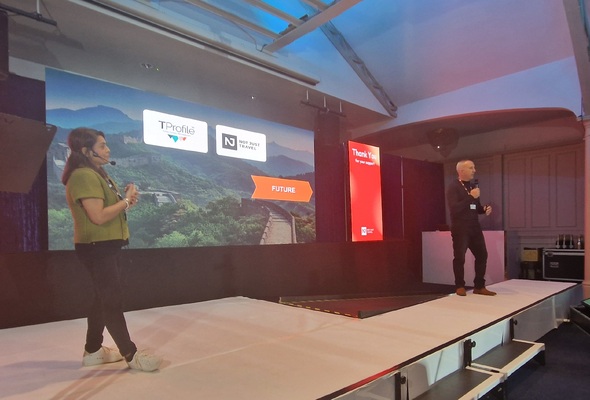Why AI should inspire your travel marketing strategy to change
 Katherine Masters
Katherine MastersWith artificial intelligence driving the evolution of paid search, here’s how marketeers should respond, writes Paul Henderson, founder of London-based digital marketing agency Summon Digital
The landscape of search engine marketing is about to undergo a profound transformation, the impact will be especially felt in the travel industry.
Historically, search functioned much like a catalogue index, where users input specific, often simplistic queries to find information. Users learned that if your query got too complex, the results were poor, so everyone searched accordingly and that’s the way it’s been until now.
Now, with AI capabilities being built into search engines, we are currently witnessing the start of a seismic shift in the potential for engines to answer complex queries. So, in turn, users are likely to make that same shift, entering multifaceted queries which are going to present significant challenges due to the added complexity and difficulty in identifying search terms.
From catalogue to conversation
In the past, a traveller might have searched for "hotels in London" or "flights to New York". These searches, akin to looking up a term in an index, expected the search engine to return a straightforward list of results.
Soon, the nature of queries will be much more evolved. A potential traveller might ask, "What are the best boutique hotels in London that offer a spa and are pet-friendly?" or "Find me a flight to New York with flexible booking options and extra legroom."
This shift indicates a transition from static, keyword-based queries to dynamic, conversational interactions where the consumer expects tailored results that consider an array of preferences.
For travel businesses, this new era of search poses a significant challenge: how to effectively capture and respond to the breadth and depth of user queries. The answer lies in the use of detailed, structured data. By structuring data comprehensively, travel marketers can ensure that every potential preference and feature of their offering is searchable and can be matched accurately by broad intent-based campaigns, delivered on AI search technologies like Google’s Search Generative Experience (SGE).
Enhance your ad relevance
Structured data allows travel marketers to annotate their content with detailed metadata (additional descriptive text not shown on the page) that search engines can use to understand the context and specifics of their offerings. This is crucial in an environment where the success of paid search increasingly depends on matching ads with complex user intents.
Rich, detailed product information: For example, structured data can be used to specify attributes of a travel package, such as destinations, amenities, price ranges, and user reviews. This not only helps in aligning with specific queries but also enhances the presentation of ads through rich snippets and other advanced SERP features. (SERP features are unique results on Google’s search engine results pages (SERPs) outside of traditional organic listings)
Dynamic customisation and targeting: With AI-driven tools, structured data helps in dynamically customising ads to fit the user’s query. If a user searches for a family-friendly vacation in Spain with cultural tours included, structured data helps ensure that your most relevant offerings are highlighted.
Continuous optimisation: As search queries become more diverse, continuously updating and refining of structured data will become essential. This ongoing optimisation ensures that new amenities, services, or changes in travel packages are accurately reflected in search results, helping travel companies stay competitive.
Two types of structured data
Website content markup: This helps Google better understand the content of pages. This is particularly useful when using automated ad features like Dynamic Search Ads that use landing page information to match to searches.
Business data: Enables more effective targeting and personalisation of ads. This data can be product, inventory, customer data or even performance data.
As search evolves from a simple catalogue model to handling complex, conversational queries, the strategic use of structured data becomes a cornerstone for success in travel marketing. By embracing detailed, structured data, travel marketers can not only cover the extensive variety of user preferences but also enhance the accuracy and relevance of their paid search campaigns.
This detailed approach will be key to thriving in a landscape where user expectations for precise, personalised search experiences are continually rising in line with search engine’s increasing ability to interpret them.
Travel Technology Initiative (TTI) is a not-for-profit organisation providing members with the latest thinking on technology as well as developing industry-wide standards for travel. For more information, please visit tti.org
In TTG's TTI Travel Tech Talk series so far, we have looked at:
- Travel's next disruptive technology – the metaverse
- Whether Artificial Intelligence will replace the human travel agent
- How to stop cyber-criminals infiltrating IT systems
- The secret weapon for reducing lost counter time in agencies
- The AI tool that can increase agents' efficiency and productivity
- What to consider when choosing a new card payment services provider
- The seven steps to creating a seamless online booking journey
Sign up for weekday travel news and analysis straight to your inbox

Katherine Masters
Supplier Directory
Find contacts for 260+ travel suppliers. Type name, company or destination.













